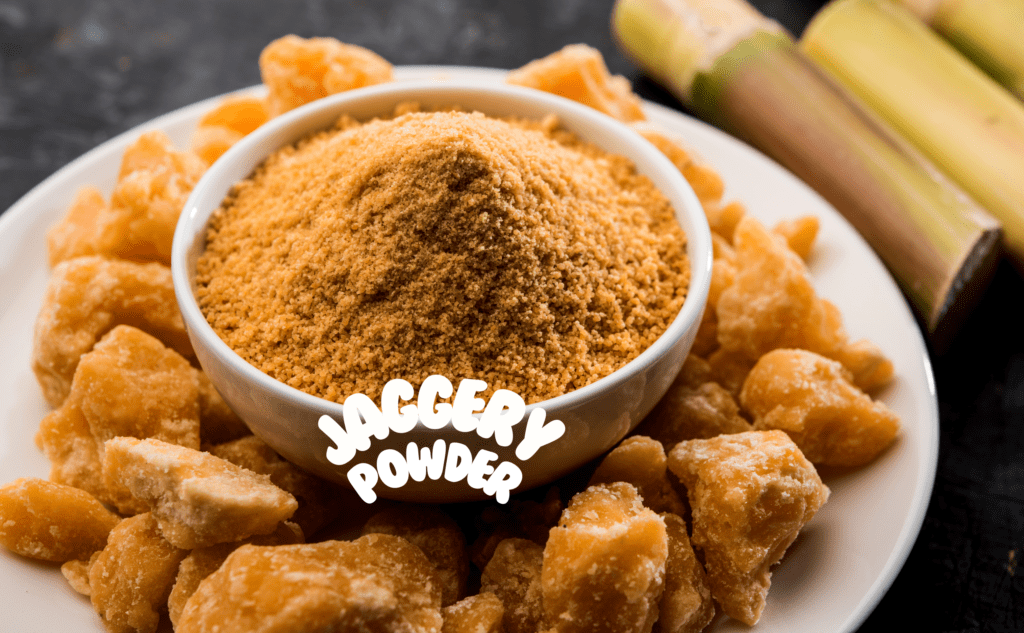Jaggery : The Sweet Health Booster
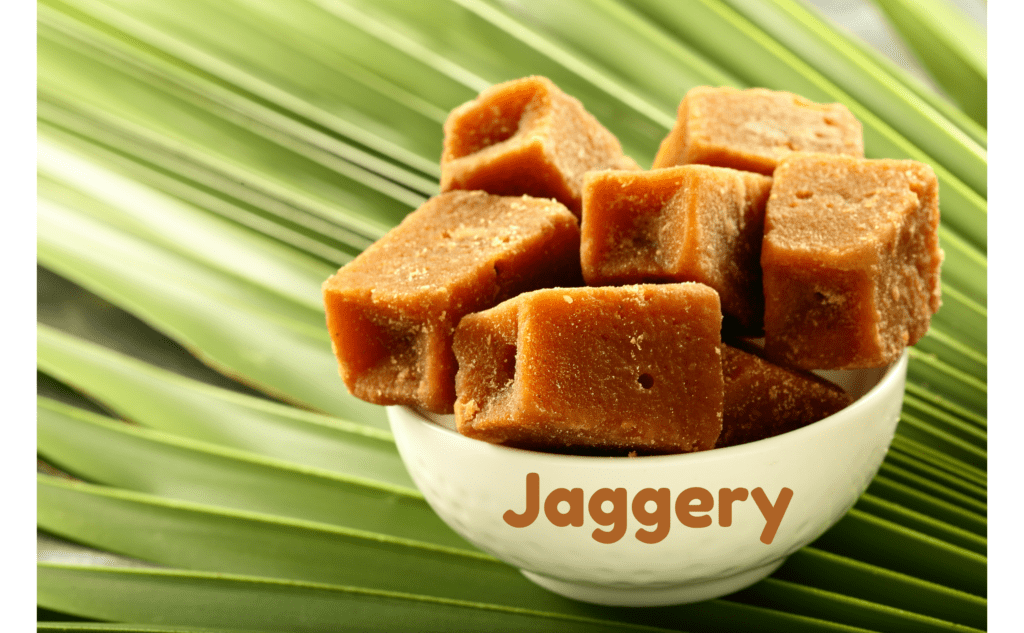
In a world where refined sugar dominates our diets, there’s a natural alternative that’s been cherished for centuries: jaggery. Often hailed as a healthier sweetener, it is not only delicious but also packed with nutrients and health benefits. In this blog, we’ll explore what jaggery is, its health benefits, how it compares to refined sugar and creative ways to incorporate it into your diet.
What is Jaggery?
It is a traditional sweetener made from the concentrated juice of sugarcane or date palms. Unlike refined sugar, which undergoes extensive processing, jaggery is minimally processed, retaining more of its natural nutrients. The process involves boiling the juice until it solidifies, resulting in a block or granulated form of jaggery that can vary in color from golden to dark brown.
Types of Jaggery
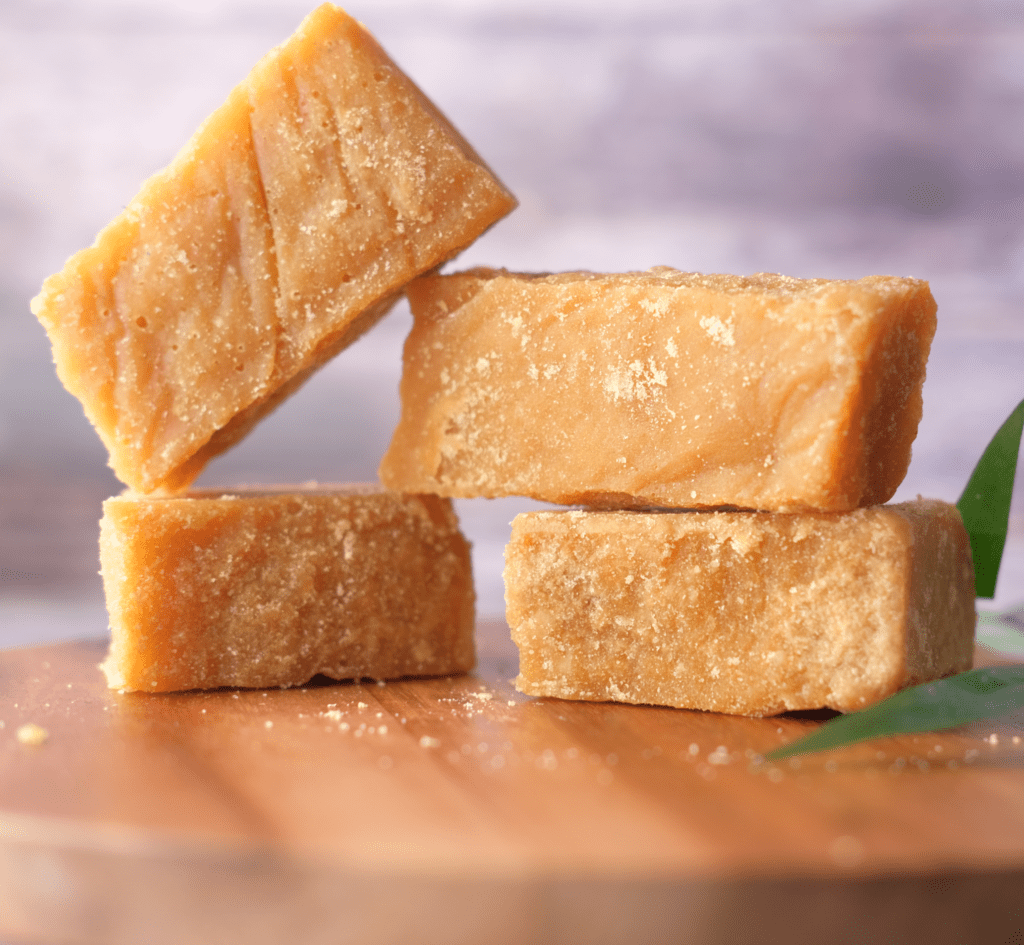
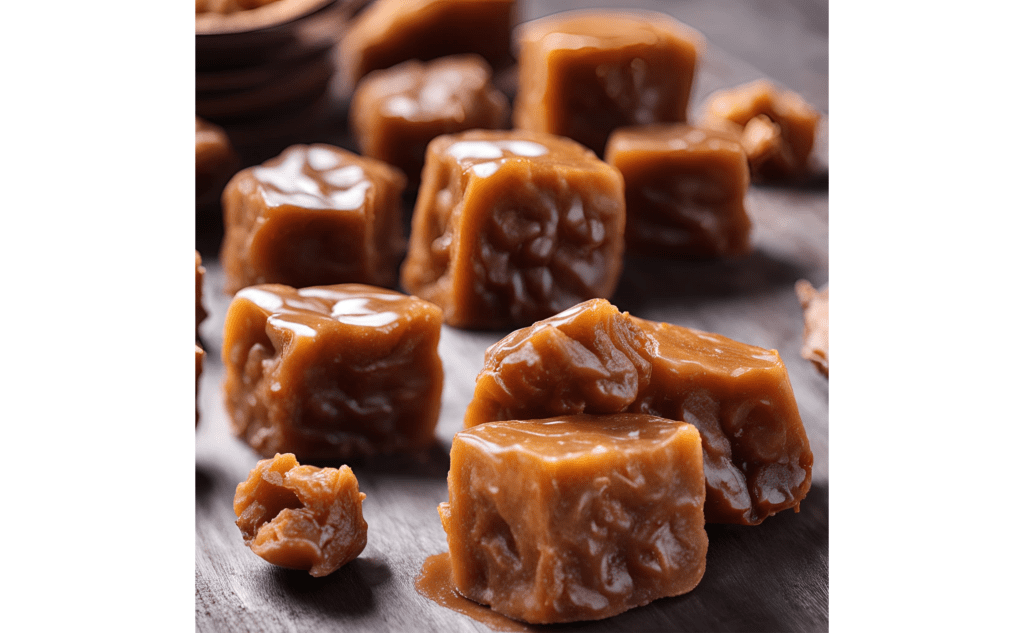
– Sugarcane Jaggery: Made from sugarcane juice, this is the most common type of jaggery and is widely used in South Asia and parts of Africa.
– Date Palm Jaggery: Produced from the sap of date palms, this variety is often used in Middle Eastern and North African cuisines and has a distinctive flavor.
Nutritional Benefits

- Rich in Essential Minerals: Jaggery is a powerhouse of minerals. It contains significant amounts of iron, magnesium, potassium, calcium and zinc. These minerals are essential for various bodily functions, including maintaining healthy blood pressure, strengthening bones and supporting the immune system.
- Boosts Immunity: It contains antioxidants that help fight free radicals in the body. It also has antimicrobial properties that can boost your immune system and help fight infections.
- Improves Digestion: By encouraging the formation of digestive enzymes, jaggery consumption can improve digestion. It can also help in alleviating constipation due to its high fiber content.
- Detoxifies the Body: It is known for its detoxifying properties. It helps cleanse the liver by flushing out toxins from the body, leading to improved overall health.
- Regulates Blood Sugar Levels: Unlike refined sugar, which can cause spikes in blood glucose levels, jaggery has a lower glycemic index. This makes it a better option for those looking to manage their blood sugar levels, though it should still be consumed in moderation.
Jaggery Vs Refined Sugar
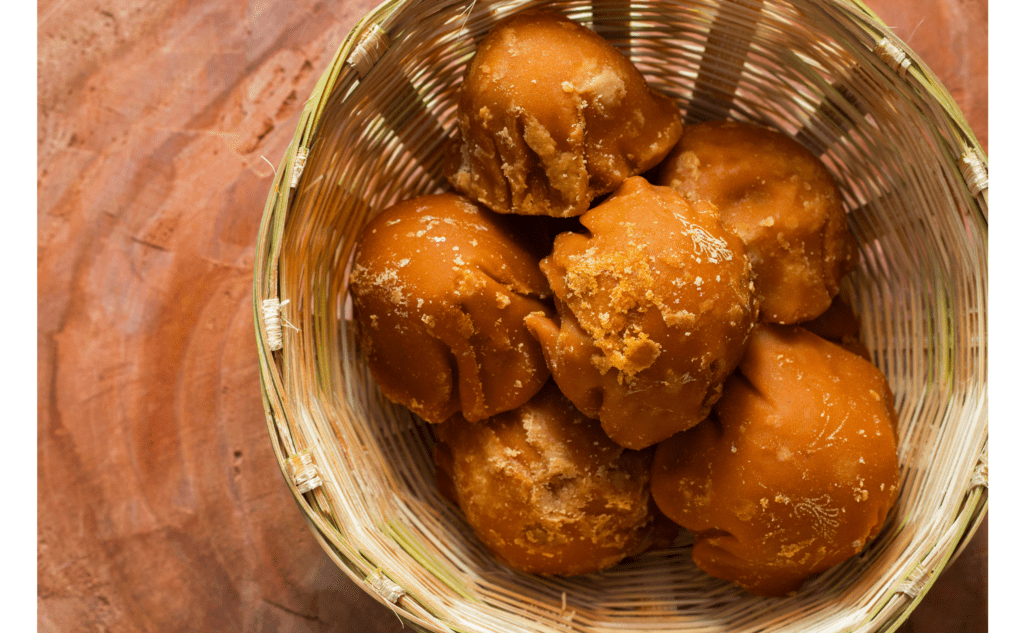
– Processing: Jaggery undergoes minimal processing, retaining more of its natural nutrients. Refined sugar, on the other hand, is heavily processed and stripped of almost all nutrients.
– Flavor: Jaggery has a rich, caramel-like flavor with hints of molasses, which can enhance the taste of various dishes. Refined sugar has a more neutral taste.
– Nutritional Value: Jaggery is richer in vitamins and minerals compared to refined sugar, making it a more nutritious alternative.
How To Incorporate Jaggery In Your Diet
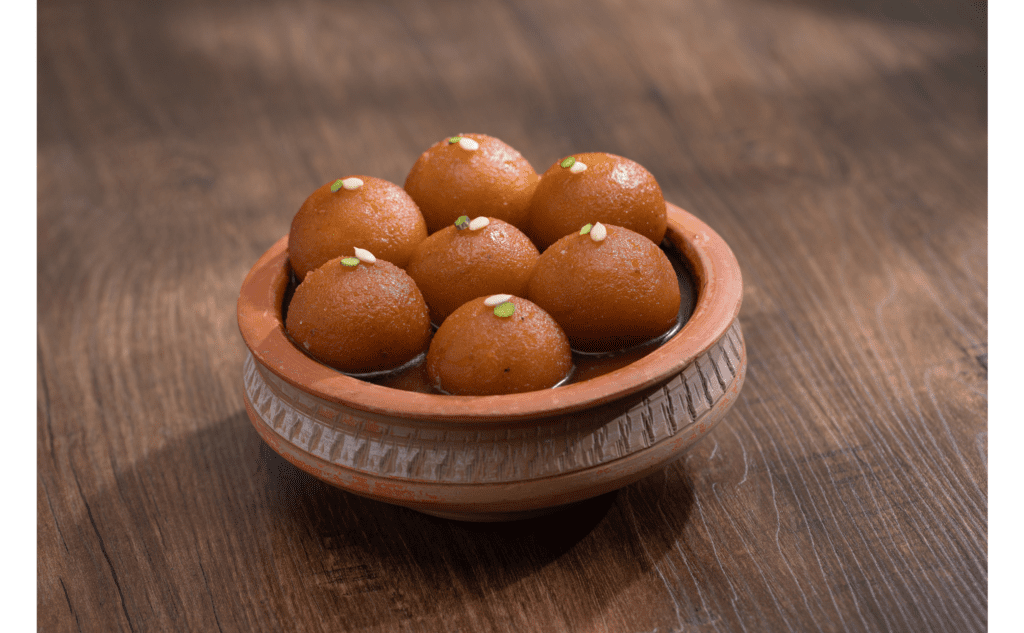
-
In Beverages:
– Tea or Coffee: Substitute jaggery for refined sugar in your tea or coffee for a unique flavor and added health benefits.
– Smoothies: Blend jaggery into your smoothies for a natural sweetness boost.
2. In Baking:
– Cookies and Cakes: Use jaggery instead of sugar in baking recipes to add a richer flavor and improve the nutritional profile of your treats.
– Muffins and Bread: Incorporate it into muffins and bread recipes for a healthier twist on classic baked goods.
3. In Savory Dishes:
– Sauces and Marinades: Add jaggery to sauces and marinades for a balanced sweetness that complements savory flavors.
– Curries: Enhance the taste of curries with a touch of jaggery, adding depth and complexity to the dish.
4. In Traditional Desserts:
– Indian Sweets: Jaggery is a key ingredient in many traditional Indian sweets, such as jaggery rice pudding (payasam) and sesame seed sweets (tilgul).
– Date and Jaggery Balls: Combine dates and jaggery to make energy-boosting snack balls.
Conclusion
Jaggery is more than just a sweetener—it’s a nutrient-rich alternative to refined sugar that can enhance both the flavor and nutritional value of your meals. With its numerous health benefits, from boosting immunity to aiding digestion, it is a worthy addition to any diet. Whether you’re looking to reduce your sugar intake or simply want to explore new flavors, consider making it a staple in your kitchen.
Do you have any favorite recipes or uses for it? Share them in the comments below!
Feel free to ask questions or share your thoughts about it.











